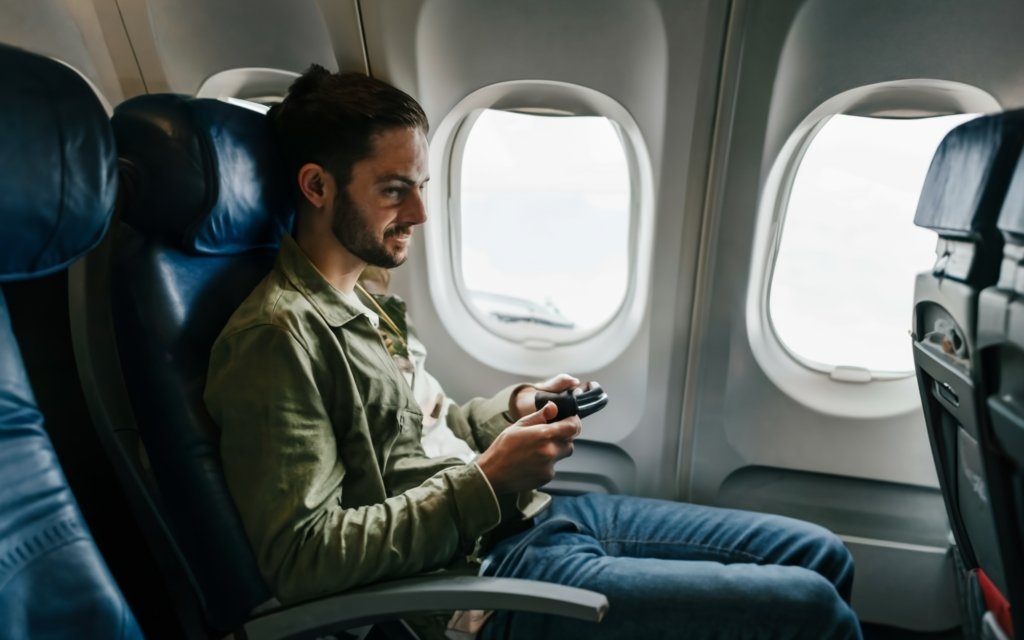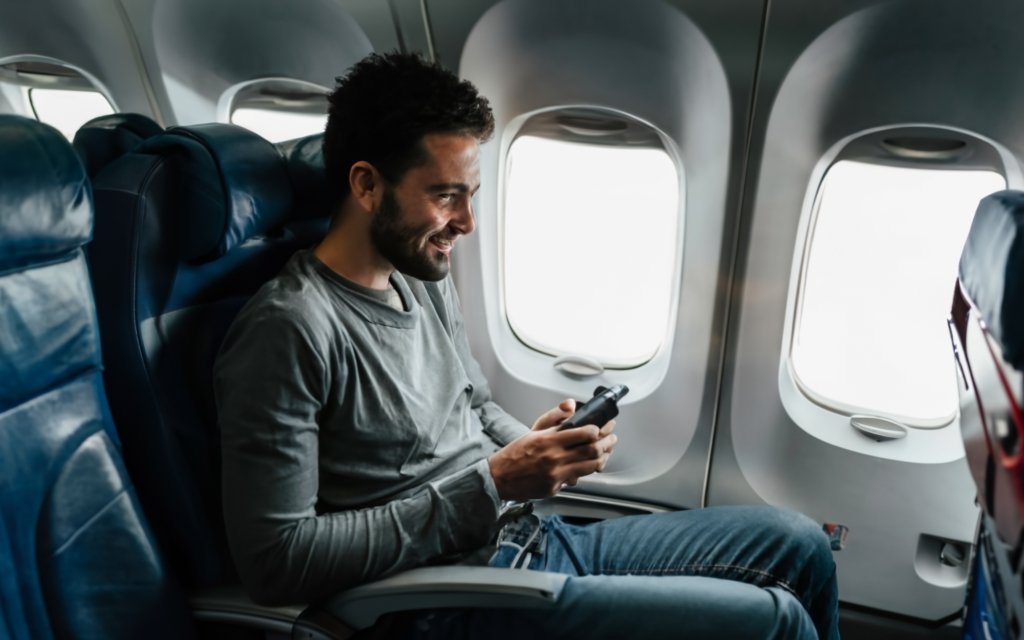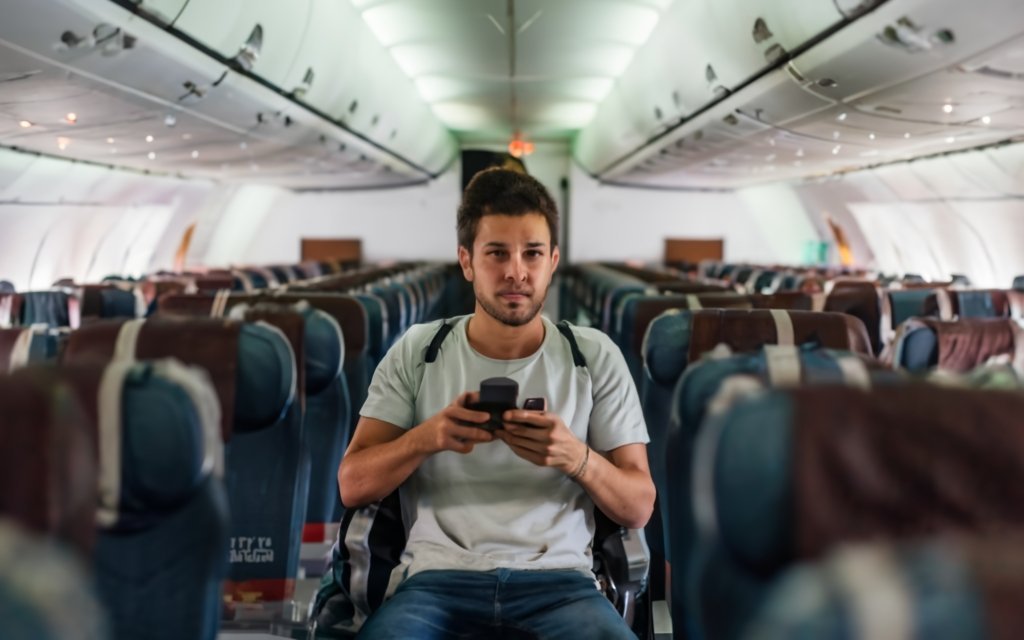While it’s not entirely accurate to say video game consoles are universally banned on airplanes, some airlines do have restrictions on their use during flights. Here are 10 potential reasons why airlines might have such policies:
Safety and Security:
- Interference with aircraft electronics: Wireless controllers and consoles could potentially emit radio frequencies that interfere with sensitive flight instruments.
- Lithium batteries: Consoles often contain lithium batteries, which are considered hazardous materials and have specific regulations for transport.
- Loose objects: During turbulence, loose consoles or controllers could become projectiles, injuring passengers or damaging equipment.
- Distraction for crew: Visible screens and sounds from games could distract crew members during critical moments.
Passenger Comfort and Experience:
- Limited space: Consoles and their accessories take up valuable cabin space, especially in economy class.
- Noise and light pollution: Console games can be loud and visually distracting for other passengers, disrupting their sleep or enjoyment of the flight.
- Battery drain: Consoles can drain airplane power outlets, potentially reducing resources for other essentials.
- Screen fatigue: Prolonged exposure to console screens can contribute to eye strain and headaches for passengers.
Operational Concerns:
- Security checks and delays: Inspecting consoles for prohibited content or potential risks could add time and complexity to security checks.
- Damage to aircraft: Accidental spills or rough handling of consoles could damage airplane equipment.
It’s important to note that these are potential reasons, and not all airlines apply all of them. Some airlines allow consoles for in-flight entertainment, with specific restrictions like using wired controllers or pre-downloaded games. Ultimately, airlines have the discretion to set policies for their passengers’ safety, comfort, and smooth operation of flights.
Basing on my personal experience and knowledge, i will now explain in detail each of he above reasons and feel free o reach in case you need more clarity apart from what i have to say in this article, NICE READING!
Safety and Security:
Securing safety and upholding security measures is the paramount priority in the aviation industry. This policy does not suspend or compromise even when it concerns game consoles, a seemingly harmless piece of recreation for gamers aboard.
The banning of these entertainment devices may baffle many travelers; so let’s explore why this cautionary step is necessary, especially from an airline security standpoint.
• In-flight electronic interference: One key reason behind forbidding game consoles on planes harks back to the potential electronic interference they can cause during a flight. These high-tech devices can create radio emissions, which could interfere with critical aircraft systems like navigation and communication.

• Concealed Illegal Content: Game Consoles come equipped with hard drives that could potentially bear harmful content—a route often preferred by miscreants to smuggle illicit data across borders undetected. Thus, creating a possible breach in airport protocol.
Engaging in your favorite digital showdown mid-air might appear enticing but not at the expense of hampering aircraft integrity or bypassing security protocols. Safety indeed trumps entertainment when soaring miles above ground level. It’s crucial that passengers respect and adhere to these rules set out by airlines as they play a significant role in maintaining everyone’s safety on board.
Interference with aircraft electronics:
Notable Disruptions and Anomalies
Here’s a curious detail: modern flights are pretty high-tech. Yet, something as common as a gaming console can potentially wreak havoc on an airplane’s sensitive electronic systems. Let’s explore how this strange intersection of technology and protocol operates.
Interfering with the Flight Systems
Every aircraft is equipped with complex electronics that ensure safe flight operations. These electronics, while robust in many ways, can be susceptive to disturbances caused by other electronically powered devices. Such devices include gaming consoles that emit strong electromagnetic radiations — predominantly Radio Frequency (RF) energy.
– If these fields come into direct contact with certain aircraft equipment, they can cause interference or anomalies.
– In worst-case scenarios, these interferences might pose substantial risk such as causing important flight instrument to malfunction.
Peeling back the layers of this issue unveils why airlines instruct passengers to switch off any game consoles during flights — it’s all about preserving the integrity of airborne systems and ensuring passenger safety at all times. So next time you’re asked to power down your console before takeoff, remember it’s not just about following flight regulations — it has real safety implications too!
Lithium batteries:
Diving deeper into the subject, let’s take a moment to ponder about lithium batteries, an integral component not just in our game consoles, but also in nearly all portable devices.
These small powerhouses have revolutionized the electronics industry, enabling us to carry lightweight gadgets with impressive battery life. But they hold a dark secret that has forced aviation authorities worldwide to impose restrictions on carrying them on flights.
Despite their prevalence and convenience, lithium batteries can be potentially hazardous. If damaged or overheated, they are prone to thermal runaway – a chain reaction that leads to self-heating and ultimately could cause an explosion.
This isn’t even the scariest part; once ignited, a lithium fire is incredibly hard to extinguish as it can essentially fuel itself making it perhaps one of the most infamous threats within aviation safety circles.
* Lithium batteries store enormous amounts of energy which contributes significantly towards their potential hazard.
* Thermal runaway can lead to self-heating and possibly result in an explosion.
* A lithium fire is extremely difficult to put out as it can self-sustain its flames.
Appreciating these information makes us realize why something as seemingly harmless as our beloved gaming consoles may fall under scrutiny when we’re preparing for air travel. Understanding this underrated risk also encourages us to handle and transport our electronic devices more carefully – both for our own safety and for those around us.
Loose objects:
Loose objects can cause significant havoc during an airplane’s takeoff or landing due to the physics involved. Picture this: you’re in a high-speed vehicle that abruptly stops or changes direction, any object not secured becomes a potential missile. This applies even within the miniature universe of your game console too!
– Imagine your console taken over by gravity; those small moving components inside are shaken around and can come loose.

– A harmless save button could become dislodged and end up lurking in an entirely different part of your console, rendering it useless until repaired.
– Furthermore, tiny screws might unscrew themselves from the continuous vibrations experienced during flight, leading to internal damage.
These scenarios underline why electronic devices with many loose components such as game consoles may pose accidental hazards aboard flights. While these occurrences are infrequent, airlines have preferred to eliminate their plausibility altogether rather than risk potential damage or injury amidst soaring altitudes.
Distraction for crew:
Distraction for crew members has always been a matter of grave concern for airlines worldwide. Just imagine, what happens if in a critical situation, a flight attendant gets too absorbed in an epic last-stage battle of Call of Duty? Beyond jeopardizing crucial duties necessary to ensure passenger safety or responding appropriately to emergencies, it could cause other serious issues.
• Game consoles can be engrossing. The task at hand may get momentarily forgotten by the cabin crew within the thrilling scenarios presented by state-of-the-art gaming platforms such as PlayStation and Xbox.
• Transmitting signals induced by these game consoles may interfere with aircraft connection systems.
• Even discreet usage during flight hours might prompt passengers to do the same leading onto possible chaos in terms of airplane decorum.
Simply put, embedding game consoles on planes is more than just about causing physical clutter or hardware considerations; it transcends into realms affecting airline safety protocol enforcement and maintaining order onboard.
Passenger Comfort and Experience:
Has it ever occurred to you that the ambiance and comfort of an airplane cabin play a critical role in your entire travel experience? It’s more than just the functionality of getting from point A to B, but about the journey – its level of relaxation, entertainment, and overall satisfaction.
When we choose flights, apart from pricing and scheduling factors; legroom space to stretch out, inflight amenities like meals or snacks, inflight entertainment options including Wi-Fi connectivity form integral parts in our decision-making process.
While some airlines have mastered the art of ensuring passenger comfort through luxurious seats or impressive dining services others decided to bank on partnering with consumer technologies for enhancing passenger experience.
* The Rise of Personal Entertainment: As much as 88% passengers prefer using their own devices rather than using built-in screens. Smartphones, tablets or laptops are not only familiar but also grant access to personalized content.
* Inflight Gaming Consoles: The idea is interesting yet raises eyebrows considering safety measures onboard. There is a need for guiding policies that do not compromise either passenger safety or enjoyment.
The charm lies in striking a balance between being entranced in your digital world without neglecting other key aspects that make up an enjoyable flight experience – service quality, seat comfort Arriving at your destination relaxed and entertained isn’t too audacious an expectation after all! Travel should ultimately be about reveling in the journey while moving towards your destination.
Limited space:
The issue of limited space on airplanes presents a dominant reason behind the ban on game consoles. For those accustomed to the spacious room at home or your favorite gaming arcade, this might seem like a small concern, but it’s actually quite significant in air travel field.
– Airplanes operate under very tight space constraints. Every inch matters and is meticulously designed for maximum efficiency.
Game consoles aren’t typically built with portability in mind. The size, accompanying accessories and weight could pose serious logistical issues for airlines when considering passenger comfort and safety rules which require that carry-on luggage fits into specific dimensions.

Additionally, the large screens common with some gaming systems create physical obstruction, potentially hindering emergency evacuations or access to essential equipment . It’s critical that airline operators prioritize these considerations over our ‘game time.’
Indeed, as minor as it may sound to us gamers initially, taking a closer look at this limitation reveals intricate ties with much broader concerns – primarily passenger safety – making air travel absolutely no place for bulky electronics!
Noise and light pollution:
One aspect often overlooked when talking about game consoles on airplanes is noise and light pollution. Passengers in the closed environment of an aircraft cabin are inevitably closer to each other than they would typically be.
Audible sound effects or bright visual triggers from gaming devices can contribute significantly to the overall noise and light pollution within this confined space.
• Regular exposure to excess noise, like that from a video game’s soundtrack or sound effects, has been linked to stress, anxiety, sleep problems and even hearing loss. A quiet cabin promotes relaxation and may enhance the likelihood of passengers catching some sleep which is crucial for those on long-haul flights.
• Equally distressing could be adverse reactions to high-intensity lights or quick-changing scenes on screens during dark flight conditions where the aircraft’s interior lights are dimmed for rest periods. This potential disturbance stands starkly against a traveler’s right to a comfortable atmosphere ensuring minimal eye strain during flights.
Navigating around these issues, airlines have set up rules banning usage of certain electronic devices such as game consoles at specific times inflight. Regulating their use ensures a balance between entertainment options for passengers while maintaining comfort levels throughout the journey.
Battery drain:
It’s no secret that digital devices, like game consoles, run on tightly packed electricity—one inherent drawback of these devices revolves around battery drain. Have you ever noticed your phone battery plummeting at a seemingly rapid rate while playing games? That’s because energy-intensive applications cause more power consumption and faster battery depletion.
However, did you know this high-speed battery drain can cause an unexpected and potentially dangerous consequence whilst in the air? This problem comes to the limelight especially on planes where hundreds of lives are at stake.
When electronic devices overheat or rapidly deplete their power, they tend to generate significant heat—often elevating temperatures to a point that may lead to overheating or–in worst cases–ignition.
• Battery Drain: Rapid discharge of energy leads to overheating
– Overheating is not only harmful for the device but can lead to inflight fires.
Provide more research-based insights into such flight restrictions; understanding why helps us appreciate rather than just weather through these necessary precautions. So next time when remembering why game consoles are banned on airplanes–think about how it’s not just about inconveniencing passengers!
Screen fatigue:
Screen fatigue, also known as digital eye strain or computer vision syndrome, is a real and increasingly prevalent issue in today’s screen-saturated world. It results from prolonged exposure to digital screens like TV’s, smartphones, computers and ironically enough – gaming consoles.
This phenomenon is not only limited to visual discomfort- it stretches its influence into other aspects of health including sleep patterns and mental well-being.

A classic paradox in the context of game consoles on airplanes lies in this very notch. Where game consoles are marketed as the perfect escape, in the controlled environment of an airplane cabin their implications could be far from ideal. The constant attention-demanding nature of console games combined with harsh screen light creates the optimal condition for Screen Fatigue to thrive:
• Endless hours of gameplay contribute largely towards dry eyes, headaches and blurred vision.
• Exposure to high-energy visible (HEV) blue light emitted by these devices disrupts melatonin production leading to altered sleep cycles.
• Mental fatigue tends toward heightened irritability which could severely hamper interpersonal relationships while traveling.
While some might argue nothing quite passes time on a long-haul flight better than getting lost in an immersive RPG world or indulging in competitive play; one needs to bear potential screen fatigue consequences in mind. Gaming certainly has its fun part but moderation remains key.
Operational Concerns:
Operational concerns form a significant chunk of the reasons behind game consoles being banned on airplanes. First and foremost, these devices are power-intensive and frequently require charging.
However, airplanes provide limited power outlets that are usually rated for lower wattages. When passengers plug in their energy-demanding game consoles into these sockets on board an aircraft, it could potentially lead to overload or even short circuits – scenarios best avoided in mid-flight!
– High power consumption: Game consoles can demand more electrical power than what’s normally accommodated by onboard sockets.
– Risk of system malfunction: Overloading the circuitry poses risks such as tripping fuses or damaging complex (and vital) airborne electronics.
Furthermore, wireless connectivity used by many game consoles could interfere with certain aspects of aircraft operations. Although modern aircraft systems are well-shielded against most regular consumer electronics, precaution remains a common practice; limiting possible electronic interference ensures higher safety margins during flight.
– Potential signal interference: Wireless connections prevalent in game consoles might clash with sensitive airplane systems.
In conclusion, while gaming on a long flight seems enticing for some passengers wishing to kill time effectively—it is clear that unyielding operational demands dictate otherwise. Streamlining logistics and minimising potential hazards remain paramount; sadly making your beloved gaming console an unwelcome carry-on.
Security checks and delays:
These security measures, while undoubtedly for your safety, might sometimes leave you flustered when your beloved game console isn’t allowed past the checkpoint.
Most of us have been subjected to competent yet seemingly over-zealous airport security checks, perhaps even shrugging off the delays as just another part of the modern air travel experience. But why exactly are game consoles often a no-go?

• The intricacies inside: Game consoles are complex electronic devices having a myriad of small parts which can be misinterpreted as potential threats on an X-ray machine.
• Manipulation concerns: There’s a possibility that these devices might have been tampered with or modified for malicious purposes.
Perception is key here – knowing about these factors helps develop empathy towards airport security processes and mitigates frustration during travel delays.
Understanding that it’s not an arbitrary rule but rather one rooted in keeping flights secure should add some solace to our console-less journeys. So next time when your PlayStation or Xbox becomes subject to scrutiny or outright restriction, remember it is all in the broader context of ensuring safe travels for everyone aboard.
Instants like these serve as reminders; despite technological advancements, achieving perfect harmony between security and convenience continues to elude us sometimes – particularly vivid when we reluctantly part ways with our gaming companions at the airport gate.
Those flying frequently have learned – albeit unwillingly – balancing ‘bringing their entertainment along’ with compliance towards such rules can indeed contribute to smoother excursions.
Damage to aircraft:
Damage to aircraft has further-reaching implications beyond the immediate danger. There’s a reason why game consoles are prohibited on planes, and it’s due largely to the potential damage they might cause.
These household gadgets can be enjoyable pastimes but, when taken into an airspace environment, they present particular risks that could compromise the safety of all onboard traveling at thousands of feet above ground.
• Lithium Batteries: Many game consoles are powered by lithium-ion batteries which are notorious for their heat-generating properties. The confined spaces within an airplane amplify this risk as overheating can ignite combustible materials, resulting in possible inflight fires.
• Interference with Aircraft Systems: Game consoles emanate electromagnetic signals while in use or even when just switched on. These signals have the potential to disrupt the sensitive equipment piloting and managing airplanes; even slight disturbances in these systems could have disastrous consequences.
• Physical Harm in Turbulence or Emergencies: In case of severe turbulence or emergency landing scenarios, unsecured items become lethal projectiles – including your favorite gaming console.
This level-headed restriction from aviation authorities is far from being merely disruptive – it’s safety-driven and crucial to preserving air travel integrity. You should consider reading another article i wrote about >>>> Gaming and Physical Strain: Can Video Games Trigger Tennis Elbow Pain? to learn more.






